Located in Benha, Egypt, Benha University is a comprehensive public university in Egypt with 15 faculties and 146 scientific departments, making it the largest university in Egypt. From April 30thto May 14th, 5 student representatives together with their accompanying teacher Xu Dongyang, the director of general office in the WHU Office of International Affairs, visited Benha University to participate in short-term exchange program. During those two weeks in Egypt they had friendly communications with local teachers and students as well as gained great knowledge about splendid ancient Egyptian cultural relics.
Visiting faculties in Benha University
Upon their arrival, delegation from WHU was warmly welcomed by the president and student leaders of Benha University in a reception. At the reception, Mr. Xu introduced the subject arrangement and department layout of Wuhan University, while the student representatives shared their understandings and experiences of their majors and campus life.

Xu Dongyang receiving a present from Benha University on behalf of WHU
During their stay in Benha University, WHU delegation visited the Faculty of Agriculture, Faculty of Science and had a tour of the campus. Professors in the Faculty of Agriculture showed them around their experimental plot and patiently introduced some unique local plants in detail. Also, our students visited laboratories in the Faculty of Agriculture and learned about the mechanism of the scientific equipment.
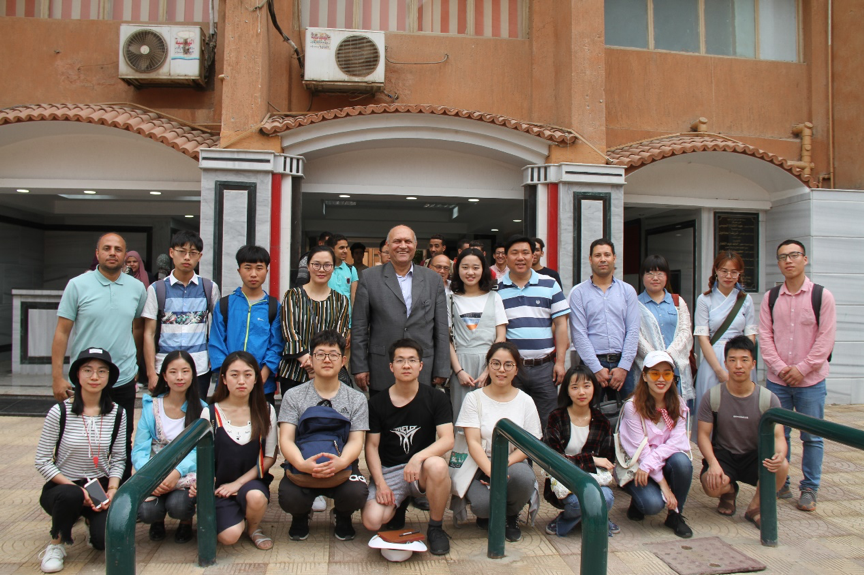
Group photo with staff at Benha University
While a large part of this country is located in desert area with scarce water resources, Egyptian people expressed great concern about environmental problems. During the conversations, professors in Benha University were eager to know about the latest techniques applied in agriculture and the mode of eco-friendly cities set in China.
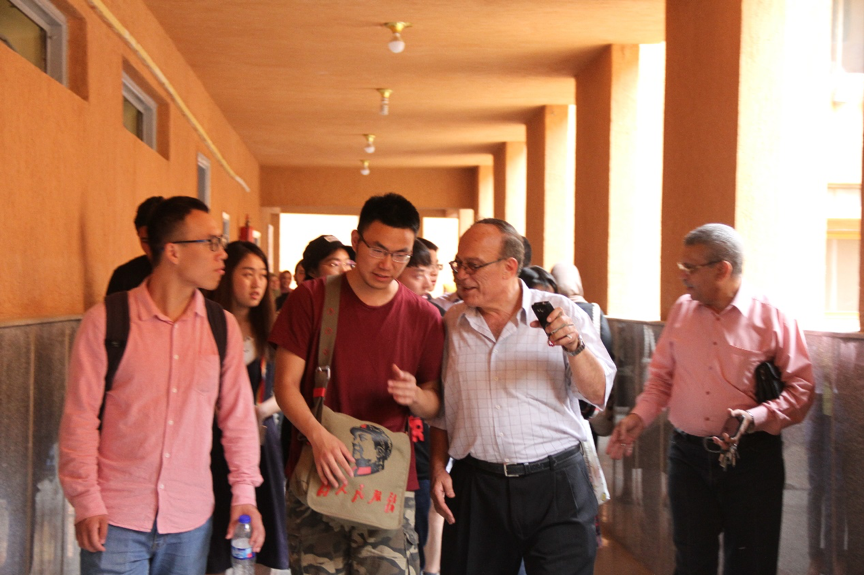
Students communicating with a professor in Benha University
When entering one of the offices, students were deeply impressed by the plants cultivated by the professor indicating his love and passion for greenery and better environmental condition. “Though my research field lays mainly in marine creatures, I love these green plants so much that I always pay attention to environmental protection.” The professor couldn’t hold his excitement when showing the students around his wonderful office.
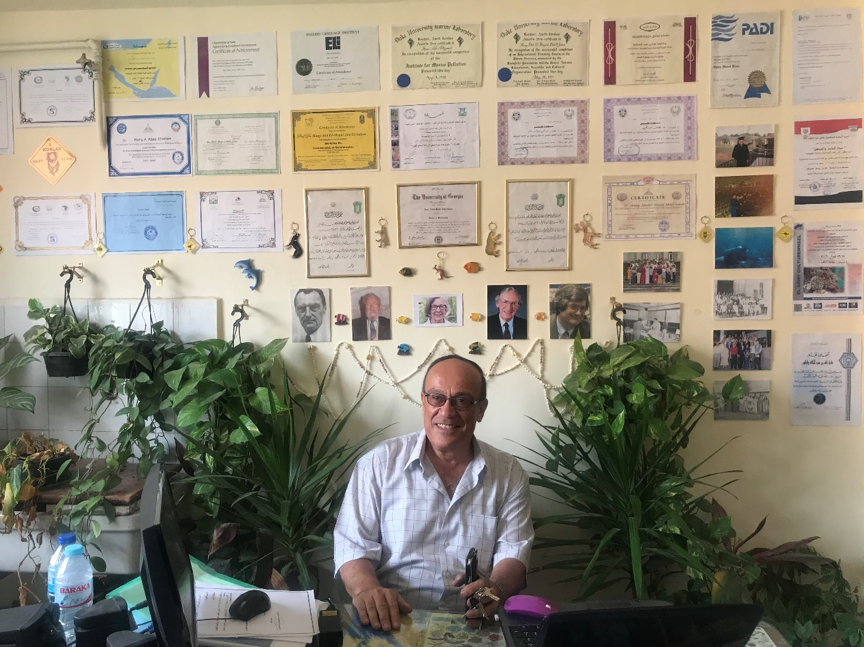
A professor in the Faculty of Science in his office full of green plants
Conversation between Egypt and China
Originating along a mother river and incubating ancient human civilizations, the similarities between Egypt and China can be easily found when we take a glance at their history. Yet with one located in Northern Africa, the other in Eastern Asia, misunderstandings inevitably occur and can only be eliminated by close communication, which is the exact purpose of this exchange program.
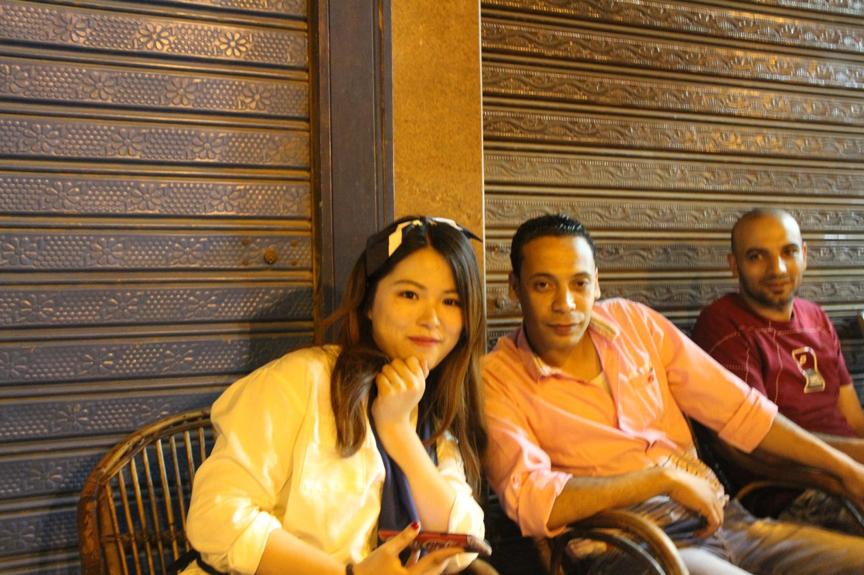
Photograph with locals
Arid climate, dusty cities, Arabic language, Islamic faith, Middle Eastern architectural style—life and customs can feel totally different in Egypt in some aspects. Horses and donkeys can be seen on the road carrying piles of bagasse. People wear baggy clothes to cover every inch of their bodies, women use scarves to veil their face. Though vast differences exist in culture, religion and other aspects, local people treat our Chinese visitors with great hospitality and kindness.
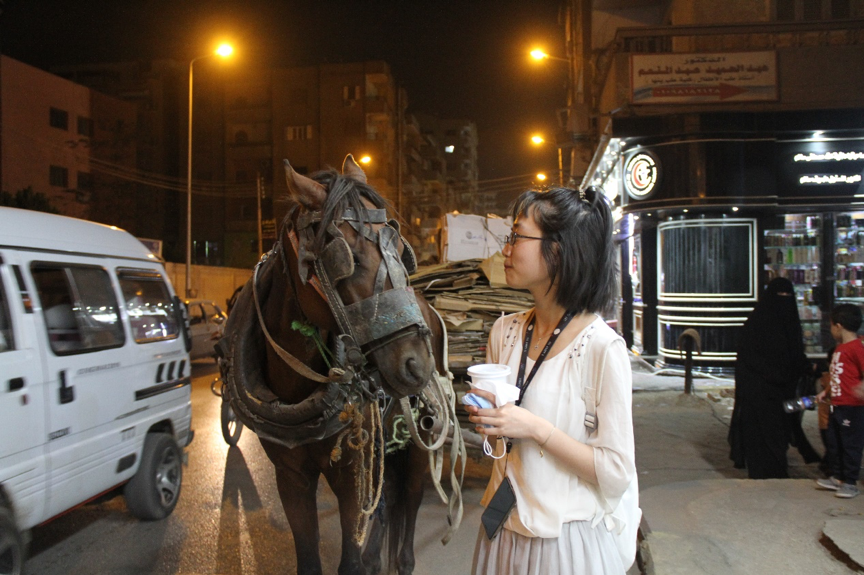
Horse on the road of Benha, Egypt
In the culture class, Professor Noha Hussain exhibited some videos which differentiated Egypt from China in various aspects, which pointed out that although China had developed at a faster pace than Egypt, there were similar social problems which both countries encountered. Also, it was kind of surprising to learn that many goods sold in Egypt were actually made in China. Professor Noha expressed her gratitude for China: “Nowadays, many small objects in our daily life are imported from China, which are not only inexpensive but also convenient to use. Also, many mobiles phones we are using today are Chinese brands. The connection between these two countries has never been closer, and there are many other ways in which we can corporate.”
On May 6th, students specialized in Chinese from Benha University participated in a small meeting with WHU counterparts, where they exchanged ideas and introduced Chinese poetry, pop songs and even tongue twisters to local students.
Mysterious ancient Egyptian cultural relics
Rooted from 5000 BC, the Egyptian civilization is always appealing to us for its splendid culture and mysterious legends. The exchange program provided students with a unique opportunity to get in touch with these ancient cultural relics and to experience them on their own.
The tour of ancient Egyptian civilization began at the Egyptian Museum of Antiquities situated at Tahrir Square in Cairo. Constructed during the reign of Khedive Abbass HelmiⅡin 1897, the grand museum contended 107 halls with two floors. Huge statues were displayed at the ground floor, while the upper floor was used to store small statues, jewels, the mummies and world-famous Tutankhamon treasures. Tourists from all over the world come to visit the museum every day, and according to the tour guide it takes at least six hours to cover all the exhibits.
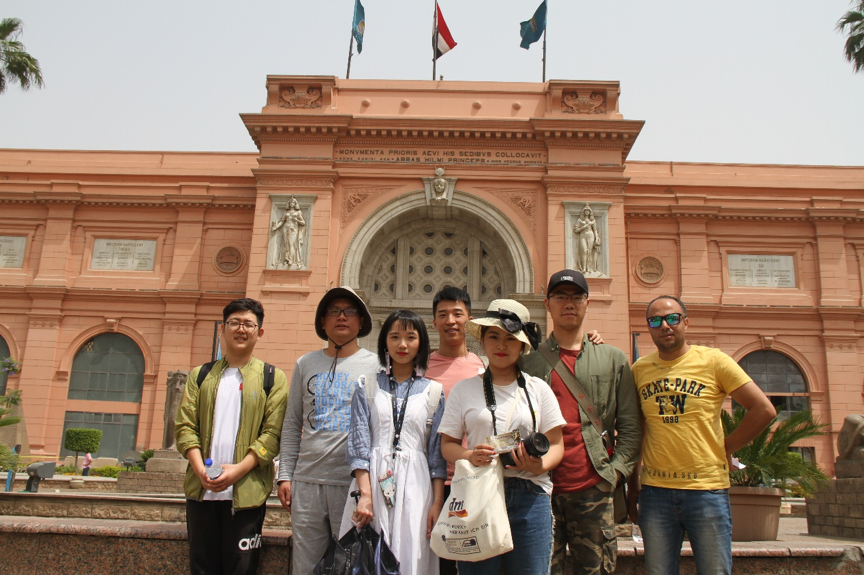
Group photo at the Egyptian Museum
There are no ancient sites more famous within Egypt, nor elsewhere in the world, than the Great Pyramids of Giza. They are, without any doubt, the icons that can mostly represent Egypt, which have been both the main destination for tourists, and a source of imaginative thoughts to the world for over three thousand years. While walking around those magnificent buildings, the aura of ancient Egypt feels almost near at hand.
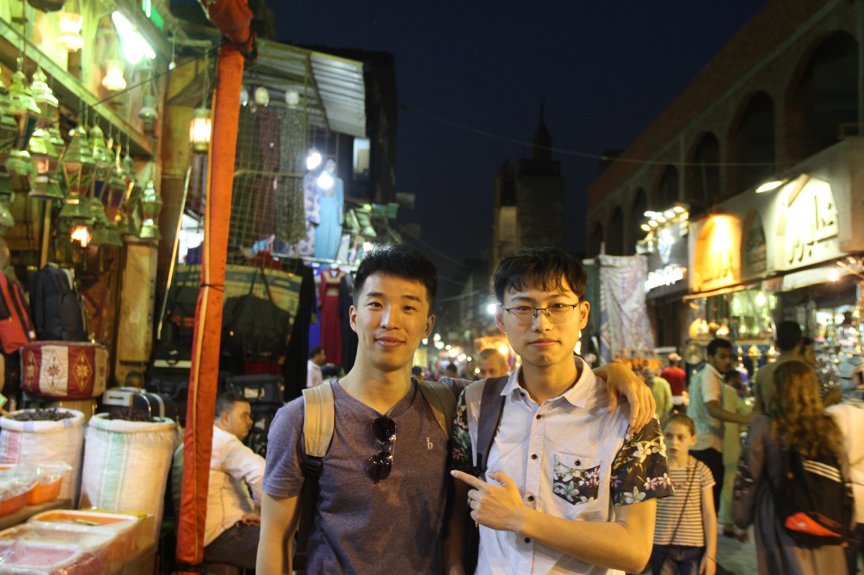
Khan el-Khalili, the oldest market in Cairo, Egypt
Situated on Mugatam Mt. on the outskirt of east Cairo, the Citadel of Saladin was built during the end of the 12thcentury to defend Egypt against invasions. The citadel includes the marvelous Mosque of Mohamed Ali, the best example of the Ottoman architecture in Egypt, the Mamluk Mosque of El Nasser Mohamed, and the small charming Mosque of Suleiman Pasha El Khadim.
The exchange program not only provides our students with an incomparable opportunity to learn about Egyptian society and culture, but also an excellent chance for WHU students to share Chinese culture and language to this ancient nation. With the implementation of the Belt and Road Initiative, China and Egypt are sure to connect more closely than ever, and so will WHU and Benha University.
(Photo from Hu Zixin)
(Edited by Yumeng Xu, Sun Jingyi, Edmund Wai Man Lai, Liu Jiachen and Liu Xiaoli)